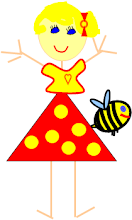Preschoolers are naturally curious about the world around them which can lead to exciting and fun opportunities for learning in the preschool classroom.
Often times, preschool teachers shy away from planning for science in the preschool classroom because they are under the impression that science is all about formal experiments and chemical reactions.
In the preschool classroom, think about science in terms of exploring, discovering, and nurturing your preschool students' curiosity about the world around them.
Start with a question
When planning for science in your preschool classroom start by asking questions that bring meaningful information to your preschool students. Questions can lead to activities that encourage children to explore, discover, and draw conclusions.
What is inside a pumpkin?
Why are there lines on the pumpkin?
Are all pumpkins orange and round?
Increase vocabulary
Science activities can help increase descriptive vocabulary. Words such as crunchy, soft, sink, float, juicy, dry, fast, slow, heavy, light, rough, smooth, hot, and cold are just a few examples of words that can be reinforced and help preschoolers gain a better understanding of their world.
Go outdoors
Take students outdoors so they can have real experiences in their world. Go to parks, take nature walks, plant seeds, dig in the dirt, climb on rocks, and feel the air. Go outdoors in all types of weather - each experience will bring new opportunties for learning.
Bring the outdoors inside
Bring in items your students can explore such as rocks, shells, seeds, leaves, plants, flowers, fruit, vegetables, dirt, sand, and more. Include a variety of containers filled with objects students can manipulate, count, weigh, and sort Use graphs and charts
Share simple graphs and charts with your students. Design charts that your students can complete independantly and as a group. After completing a chart or graph, invite students to discuss what the information on the chart or graph means. Display the information for students to look at later and to share with their parents.
Read more on why children should go outdoors - click here!
Has this information helped you? Be sure to Follow my Blog and learn more!








7 comments:
I think this is a very helpful post for all prior-to-school early childhood settings, science often scares teachers especially as they seem to believe it entails heaps of preparation for complex experiments.
I agree, the word science can seem a bit scary for sure. I am hoping those who are new or who are considering entering the early childhood field will find this blog and read the info. Thanks for your comments.
As I train early childhood professionals, I find your statement "...science can seem a bit scary..." to be quiet true. Many educated professionals don't even realize that the natural everyday explorations that they do in their classrooms are building a solid foundation for future critical thinking and scientific investigations. Simply encouraging a child to ask questions, explore their environment, make predictions, and test their theories are building the essential skills of a true scientist. There's a budding scientist in all of us :)
Those are great suggestions! What a difference it makes in a childs life to ask these "why" questions and let them know it's a great thing to explore to find out the answer. Great post!
Tammy - in my own teaching experience, I just didn't understand the things you mentioned - I was way overthinking what science should be. Once I realized science was all around, I became far more excited about bringing science into the preschool classroom. Thanks for sharing with us Tammy!
Mindi - I agree, giving preschoolers the opportunity to explore can make really make a difference in their love for learning.
Such great ideas! I gave my preschooler a magnifying glass today, and she's walked around with it all day just looking at all kinds of things.
That's awesome Amy - I love that you just let her explore. That is definitely what preschool science is all about.
Post a Comment